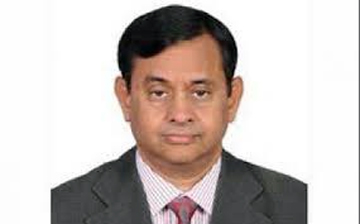DHAKA, Jan 26, 2018 (BSS) – Newly appointed Chief Information Commissioner (CIC) Martuza Ahmed is strongly considering formulation of an action plan for making ultra-poor people more aware of the benefits of the Right to Information (RTI) Act 2009.
“The ultra-poor people, however, are still not much aware of the use and benefit of the Act,” he told BSS in an interview recently. Martuza was an experienced bureaucrat who was also information secretary for five years. He joined the Commission on January 18, 2018.
Earlier, the present government, under the leadership of Prime Minister Sheikh Hasina, passed the RTI Act for ensuring free flow of information and people’s right to information. Using the Act, people including journalists are getting access to necessary information those were rarely available to public before.
Giving a brief on the action plan, the Chief Information Commissioner said the action plan will be prepared in line with the seventh five-year plan with short-, mid- and long-term goals.
“The major focus of the plan will be making the country’s extreme-poor people aware of the RTI Act so that they can use the Act in establishing their rights”, he said.
Martuza said the country needs to achieve the Sustainable Development Goals (SDGs) for attaining the government’s Vision 2021 and Vision 2041 with getting the status of middle-income country by 2021 and a developed one by 2041.
However, he said, extreme poverty should be eliminated to achieve the SDGs and mass awareness about the RTI Act would help people come out of the poverty cycle.
Established in 2010, the Information Commission is playing a vital role in implementing the RTI Act through various activities, including organising training and public awareness programmes.
According to commission officials, a total of 33,554 people, including government officials, law enforcers, teachers and journalists, have already participated in the training and awareness building programmes. The training programmes were held at 64 districts and 293 upazilas while the public awareness programmes were arranged at 64 districts and 287 upazilas.
Since 2010, a total of 2,187 complaints were lodged with the Commission. About 2,105 complaints were disposed of while 82 remained pending for hearing.



